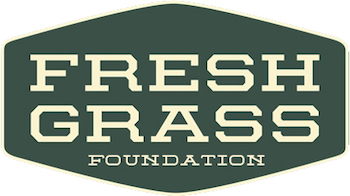How Woody Guthrie’s Legacy Fuels Mike Merenda’s Life and Music

By Mike Merenda (of The Mammals and Mike + Ruthy) for Folk Alley
Bob Dylan once famously said, “you could listen to Woody Guthrie songs and actually learn how to live,” and I think that might actually be true.
The older I get, the more painfully aware I am that I exist in a culture that simply does not know how to live. We poison the soil and call it innovation. We poison the air and call it progress. We poison the water and call it development. We poison our food and call it abundance. We poison our minds and call it news and entertainment. We poison our bodies and call it medicine. I could go on. So, yes. It’s true. We don’t know how to live.
In the words of John Lennon, “Our society is run by insane people for insane objectives. I think we’re being run by maniacs for maniacal ends and I think I’m liable to be put away as insane for expressing that. That’s what’s insane about it.”
As you can see, I look to my heroes for direction and sanity; not in a hyperbolic sense, but in a very real sense, as a means of staying sane, of staying moored to my principles, intuitions, and my ever-evolving philosophy in an increasingly insane society.
Knowing how to live is something I’ve long pondered. Even as a teenager, when my mom asked why I liked Ani DiFranco so much, remarking, “she’s so anti-establishment!” My only response was, “It’s just a gut-feeling.”
How to live. I’ve found clues in indigenous cultures (these days often expressed as “permaculture design.”) I’ve found clues in the works of Daniel Quinn (especially his landmark novel, Ishmael, which I give freely to anyone who asks, both by mail and on our concert merch table). I’ve found clues at music festivals and community events that “break the matrix,” if only for just a few hours at a time.
Honestly, in pursuit of this question, “how to live,” I’m left with many more questions than answers.
Which is why, for me—as for Bob—Woody Guthrie is such a positive force in my life and work. Woody Guthrie shows me how to live. Woody fills me up and spurs me on and keeps me going because, as he said, “largely, about all a human being is, anyway, is just a hoping machine.”
Woody reminds me to tread my own path, think my own thoughts and be wary of herd mentality: “Left wing, right wing, chicken wing.”
To call bullshit and stay on guard: “This machine kills fascists.”
To “comfort disturbed people and to disturb comfortable people.”
To “take it easy, but take it.”
To speak my truth. And yours: “If you walk across my camera, I will flash the world your story.”
To keep it positive: “Love is the only medicine I believe in.”
To keep it funny: “If we fix it so’s you can’t make money on war, we’ll all forget what we’re killing folks for.”
To fail: “All of my words, if not well put nor well taken, are well meant.”
And to do all this, to affect a change in this world, with words and music.
Music binds. Music dissolves. Music sparks and music wheels. Music fights and music soothes. Music lives and music is shared. Music is solitude and music is community. Music is truth and music is the unknown. And let’s face it, in the words of Joe Strummer, “the future is unwritten.”
But maybe more than anything else that Woody (and Pete) taught me: A life in music is worthwhile. Is noble, in fact. Music does a thing that nothing else on this earthly realm can do. It’s here, but it’s not. And it matters, but it’s ephemeral. And, as it turns out, even though everybody should, not everybody can do it.
You can be wrong, you can be right, you can be joyous, you can be infuriated. But music in your hands, and through your heart, creates magick and possibility that dream a world into being.
We will only survive these incredibly divisive times by telling our stories and hearing one another’s stories. All the stories. By giving everyone a seat at the table. Only by considering all the information, all the observations, all the intuitions, can the most commendable—and most obvious—consensus be reached amongst all the people in service to the greatest good, the greatest peace, the longest prosperity.
Woody was in it for the revolution, the quiet churning of good deeds and good thoughts—and good times—with which we sew a hand-me-down quilt of goodwill, one generation at a time. That’s what I’m in it for, too. “The world is filled with people who are no longer needed,” he said. “And who try to make slaves of all of us. And they have their music and we have ours. Theirs, the wasted songs of a superstitious nightmare. And without their music and ideological miscarriages to compare our songs of freedom to, we’d not have any opposite to compare music with—and like the drifting wind, hitting against no obstacle, we’d never know its speed, its power.”
Right now…streaming on Folk Alley’s Classic Folk Stream, a Woody Guthrie Tribute playlist in celebration of his July 14th birthday.
Tune in and enjoy 6 hours of music curated by Woody’s daughter, Nora Guthrie, including numerous covers and, of course, plenty performed by the man himself.
Find Folk Alley’s Classic Folk Stream here, on our free mobile app, or ask Alexa to “Play Folk Alley Classic Folk.”



